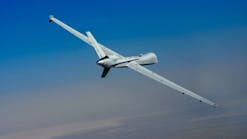The Federal Aviation Administration (FAA) on Wednesday capped the number of arriving flights at Chicago O'Hare International Airport for another two years.
The FAA's action extends caps that have been in place since November 2004. The extended caps are now timed to expire on Oct. 31, 2008, as the first phase of O'Hare's runway expansion program opens. That first phase of the modernization program is forecasted to permit more than 50,000 additional annual arrivals without causing any greater delays that are now experienced.
The caps will continue to limit arrivals at O'Hare to 88 per hour between 7 a.m. and 8 p.m. Prior to imposing the caps in 2004, there were on average 120 arrivals per hour.
The FAA and the airlines negotiated the first set of caps in 2004 after congestion at the airport caused long delays, tying up traffic not only at O'Hare, but also at many other airports.
- Click here to download the FAA's Final Ruling on Congestion and Delay Reduction at Chicago O’Hare International Airport (275 KB pdf).
The number of delays at O'Hare dropped 24 percent in the year ending Oct. 31, 2005, compared to the previous 12-month period. "As a result, O'Hare is now performing near the average of the rest of the major airports - a dramatic improvement from the airport's bottom-tier performance during much of 2004," the FAA states.
During the comment period leading up to the cap extension, the Justice Department and the Air Carrier Association of America (ACCA) both urged the extension of the the caps. Most other interested parties asked the FAA to drop the caps or radically change the allocation of landing rights.
The city - the owner of O'Hare - requested that the FAA accelerate their approval of the runway improvement program and allow the caps to expire this fall. "The city countered that the airlines have learned their lesson from the past over scheduling and are not likely to repeat the practice," according the FAA summary.
"We are not persuaded by the city's argument. Carriers typically respond to competition by matching frequency and/or fares. At O'Hare, the hubbing carries have reduced flights significantly since November 2003, and if the order expired, might resume previous flight frequencies or enter new markets to respond to other carriers' schedules," the FAA stated.
One concession in the new order to United Airlines and American Airlines - the dominate hub carriers - is a relaxation on the caps for international flights. The new rules will permit both airlines to offer new international flights through O'Hare.
The FAA will now control the sale of abandoned or under-utilized landing right slots among the airlines.




